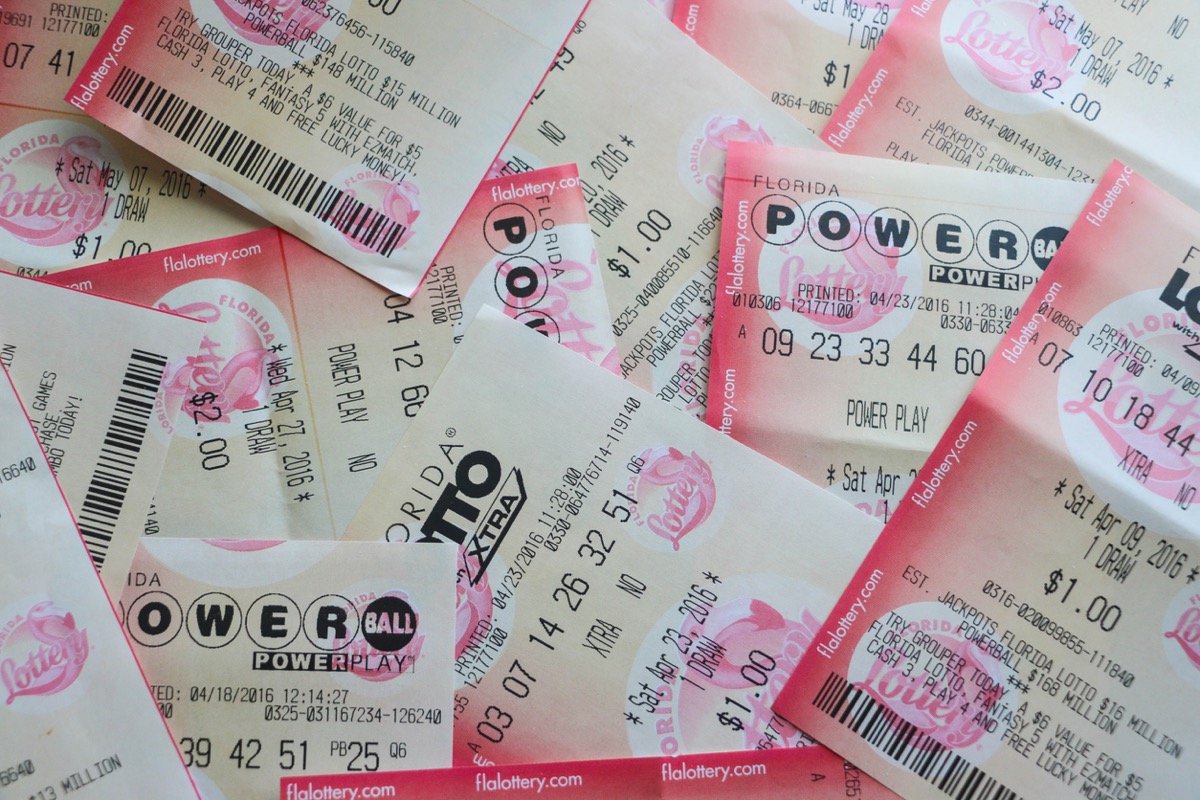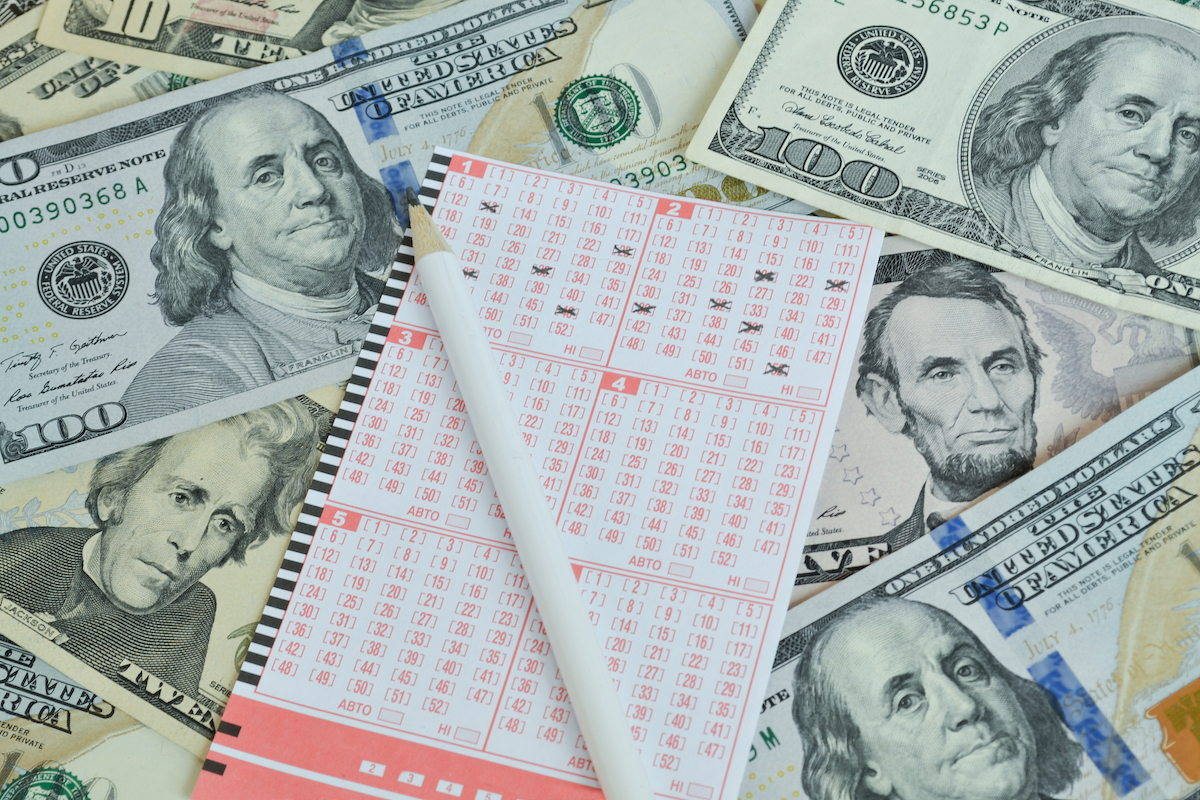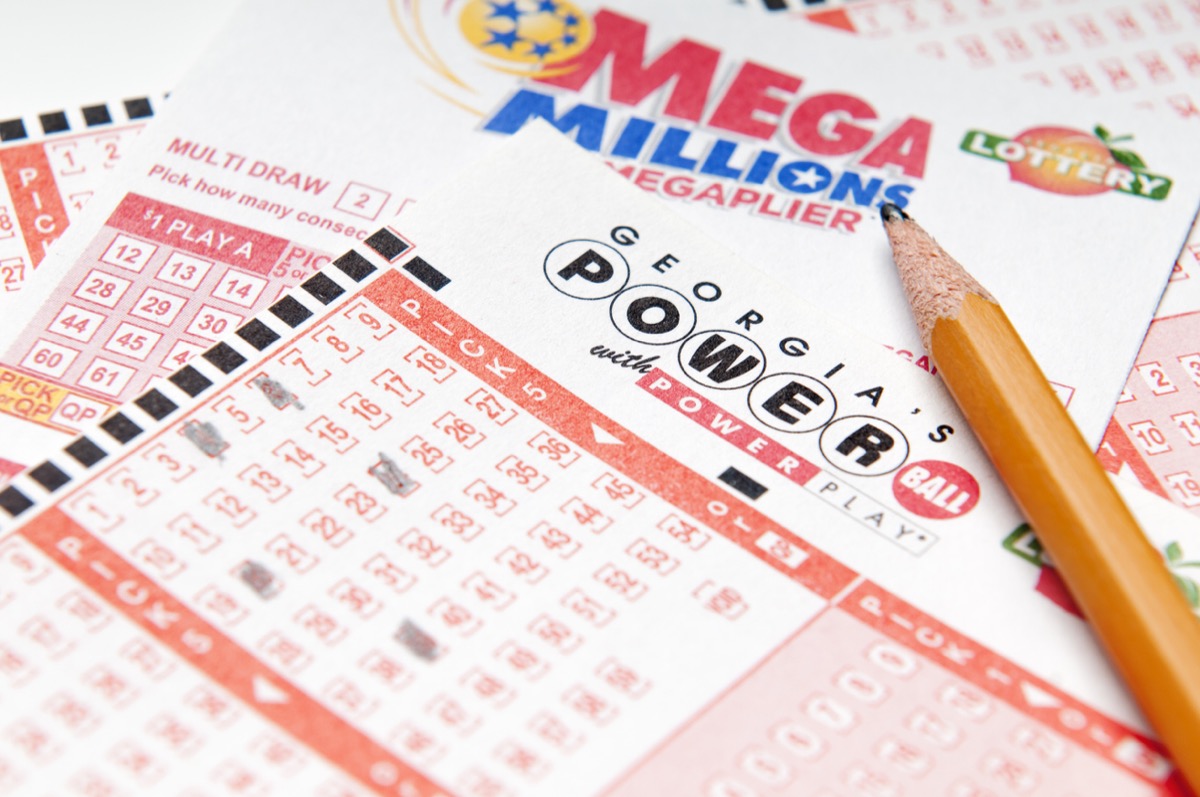The 6 Hottest Lottery Tips From the Biggest Winners

If you dream of striking it rich, playing the lottery may seem like your golden ticket to financial freedom. However, experts say that your odds of winning are exceedingly slim: Tor each ticket you buy, you have a one in roughly 302 million chance of winning the Mega Millions. Your odds of winning the Powerball are only slightly better, at one in 292 million.
Still, people do win—and when they do, it’s life-changing. With millions in hand, those lucky few can finally afford to buy the home of their dreams, help out family members, start a charity, travel the world, secure their financial futures, and fulfill any number of other fantasies.
Picturing what you’d do with the money is the easy part—but those who have won say there’s a lot more to the experience. Here are the top tips and insights those winners have shared about their brush with almost impossibly good luck.
RELATED: Gas Station Worker Reveals Secrets to Winning Money From Scratch-Off Tickets.
1
More tickets mean more chances to win.

As a statistics professor, Nicholas Kapoor knew that his odds of winning the lottery were slim to none—but that didn’t stop him from regularly buying tickets and winning a $100,000 jackpot in 2016 at the age of 26.
Kapoor says that he was advised against playing the lottery by his own undergraduate statistics professor. “He’d always show us that you shouldn’t play the lottery because the odds of winning are so small,” Kapoor told ABC News. “My counter argument was always, ‘Yeah, but somebody has to win.'”
He began regularly buying tickets to illustrate to his own students just how unlikely any individual is to win the lottery. Ultimately, his high volume of ticket purchases was the single modifiable factor that could have contributed to his success, he says.
“The only way to mathematically increase your odds of winning the lottery is to buy more tickets,” Kapoor told USA Today. “The more tickets that you have and the more combinations of numbers that you have, the higher your chances of winning are.”
2
But don’t break your budget.

If you think of buying lottery tickets as a financial strategy to secure your future, you’re likely to end up disappointed—and possibly broke. Instead, think of your lottery spending as part of your entertainment budget, and limit it to what you can comfortably afford.
Kapoor says that he considered his own lottery spending an investment in his state since the money that remains after tickets are paid out goes to public beneficiaries such as the school system.
“Play responsibly because it can get very dicey very quickly,” the professor advised while speaking with NBC.
RELATED: The 12 Lottery Numbers Most Likely to Win Big, New Data Shows.
3
Don’t focus on the numbers.

At first glance, it may seem as though lottery numbers that have been picked more frequently in the past would more likely lead you to victory. Yet Kapoor emphasized in his interview with NBC that lottery drawings are independent events—meaning past drawings have no impact on your current odds of winning.
“Every time we draw a new set of winning numbers from the Powerball or from the lottery, nothing in the past has any effect on what’s going to happen there,” he told the outlet. “So just pick your favorite numbers and see what happens,” he suggested.
In fact, on the off chance that you do win, sticking with “popular” numbers could make you more likely to have to split your winnings with someone else who’s chosen using the same logic.
4
If you win, keep it private.

When Manuel Franco, then 24, won the $768,000,000 Powerball Jackpot in 2019, he was afraid to collect his winnings.
“When I won I wasn’t ready for it. I got that paranoia that you get when you think the whole world is after you,” he said in a news conference after claiming the winning ticket. “It’s really hard living your life with the ticket that everyone wants.”
In some states, it’s legal to claim your win anonymously. In others, you’re legally required to share your name upon your claim. However, even in those states, you may be able to form an LLC to claim the winnings on your behalf—a loophole that could help protect your privacy.
RELATED: Why You Should Always Buy $10 Scratch-Offs to Win Money, Gas Station Worker Says.
5
Surround yourself with the right team.

If you win the lottery, you have up to a year to claim the winning ticket in many states. Franco says that you should take all the time you need to surround yourself with the right people before going public with the news of your big win.
The Wisconsin resident took three weeks to publicly acknowledge his own good luck, keeping the winning ticket in a fireproof safe while finding professionals to help him navigate the claim process.
“I’ve been setting up the best financial team, the best lawyer team that I could,” he said at the time.
6
Pause before spending.

According to the Certified Financial Planner Board of Standards (via USA Today), one-third of lottery winners eventually go bankrupt. The windfall proves too difficult to manage, and many fall prey to the schemes and scams of others.
Franco says that’s one of the reasons he intends to live his life as “normally” as possible after his big win—pausing before backing any major financial moves.
“I’m going to let it sink in, make sure I’m not making any bad decisions,” he said. “I do want to be responsible. I do want to help out the world, but I have to make sure my future is secure.”
Vivian Tu, an ex-Wall Street investor turned financial content creator who goes by “Your Rich BFF” on social media, says this is a sound strategy. She recommends investing at least 50 percent of your winnings in a diversified portfolio of low-risk bonds and index-tracking exchange-traded funds (ETFs).
“It’s not about getting rich and showing off, it’s about staying rich,” she says.
Best Life offers the most up-to-date financial information from top experts and the latest news and research, but our content is not meant to be a substitute for professional guidance. When it comes to the money you’re spending, saving, or investing, always consult your financial advisor directly.